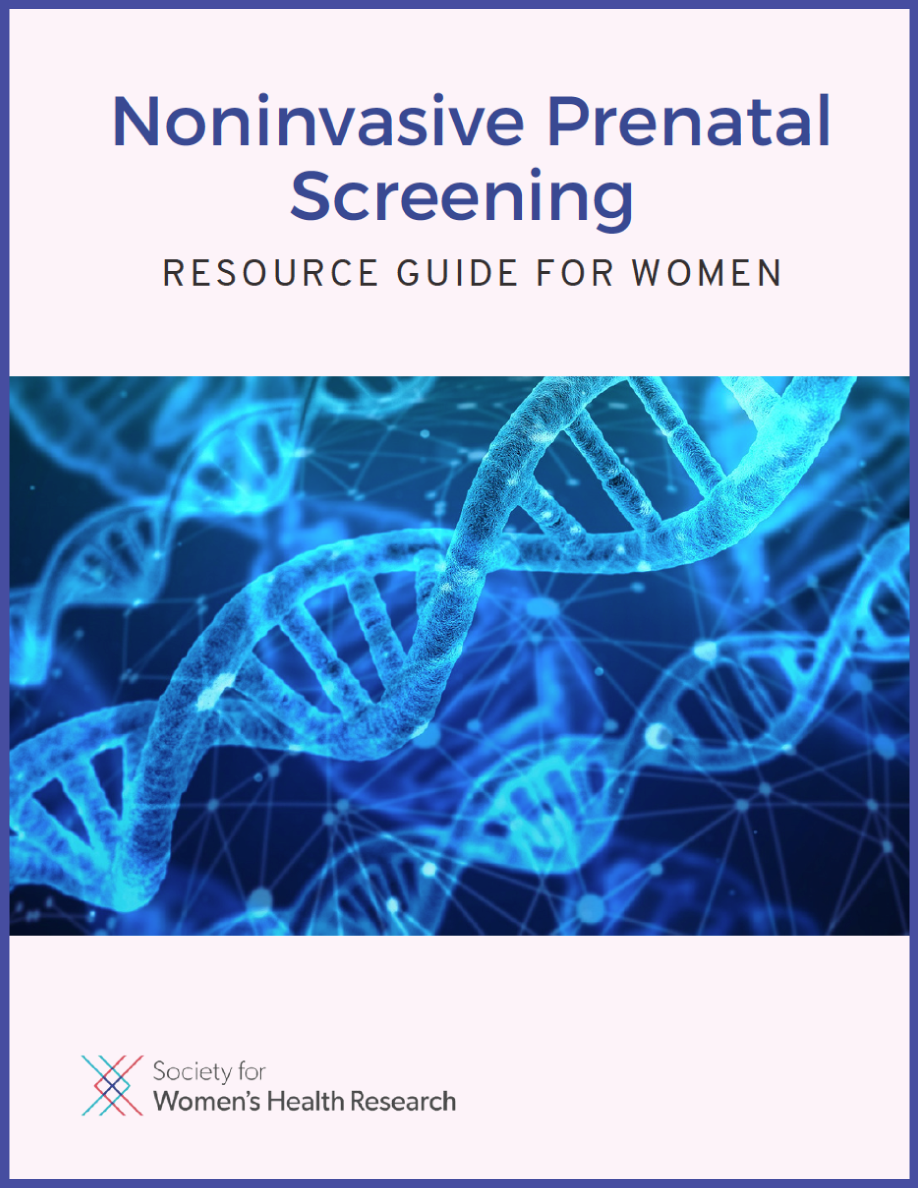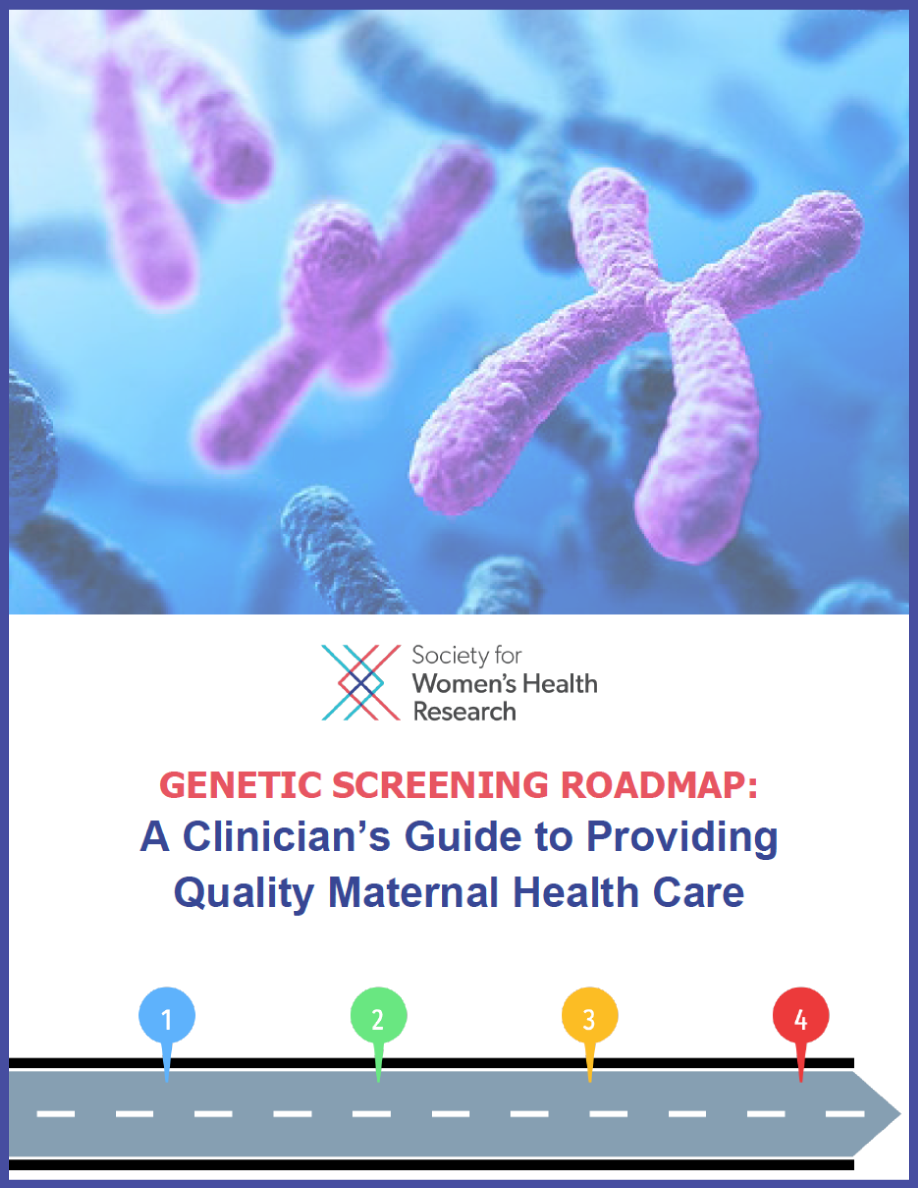Screening for genetic conditions can be done using a number of different methods and at different time points in a person’s life, depending on the type of condition being screened. However, genetic screening is often associated with pregnancy and childbirth. Different genetic screenings available before, during, and after pregnancy each offer unique insights.
Noninvasive prenatal screening (NIPS) is used to assess the risk of chromosomal aneuploidy – an irregular number of chromosomes – in the developing baby in the womb. NIPS (also referred to as cfDNA screening) can be performed as early as 10 weeks into a pregnancy and is considered noninvasive because the required blood draw poses minimal to no risk to mother or baby.
Even though the process is simple, NIPS should only be done after a woman is provided education and information about the process, risks, and benefits of NIPS, and gives her informed consent to proceed. This guide created by the Society for Women’s Health Research (SWHR) aims to provide essential information for understanding NIPS so that women may have informed conversations with their providers before undergoing prenatal genetic screening: Noninvasive Prenatal Screening Resource Guide for Women.
The resource guide explores which genetic conditions can be screened by NIPS, navigating the NIPS process, tips for talking with a health care provider about NIPS and follow-up diagnostic tests, a patient checklist, and key genetic screening terms and resources to support individuals on their pregnancy health care journey.
Remember: Screening is not the same as diagnostic testing. Genetic screening results cannot provide a definitive diagnosis. NIPS results can provide information about the potential for your baby to have certain genetic conditions, and should be followed up with diagnostic tests as needed.
Download Guide











